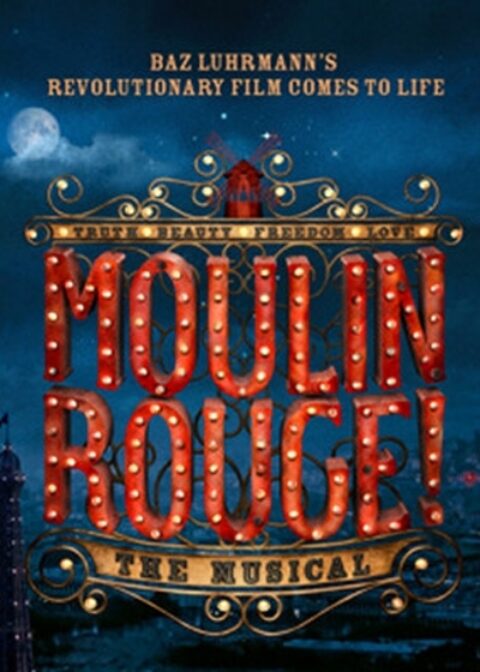Broadway Ticket Resellers (AKA Secondary Market) Are The Final Option Open To Buyers When Discount Broadway Tickets and Regular Priced Tickets Are Sold Out
What Are Broadway Ticket Resellers?
Broadway Ticket resellers are individuals (or more likely organizations), that purchase Broadway tickets and then re-sell them, usually at a profit on what is called the secondary market.
How Do These Tickets Get Sold?
The types of ticket resellers range from private buyers who buy a Broadway ticket, later find out they cannot attend and decide to sell the tickets on Craigslist to the full "professional resellers," who buy up large amounts of tickets to popular Broadway shows at a lower value so that they can resell them at a higher price and make arbitrage in the deal.
Two Types Of Broadway Ticket Resellers on The Secondary Market
There are basically two types of professional Broadway ticket "re-sellers" on the secondary market -- ticket brokers and ticket scalpers. The difference is essentially one of legitimacy.
- Broadway ticket brokers are usually better established, based in an office, and often belonging to the "National Association of Ticket Brokers", which helps ensure that they maintain certain guidelines in how they operate.
- Ticket scalpers are usually found hanging on street corners near the Broadway theatres, hawking last minute deals to passers-by; often these Broadway tickets are ones that the ticket brokers couldn't sell.
Limits On Price Markup Removed in 2007
For years, New York-based Broadway ticket brokers were only allowed to mark up their ticket prices by 20%. But in 2007, the restrictions in New York State were almost completely removed. As a result, Broadway ticket brokers and scalpers can charge as much as they like for the tickets that they re-sell. The only restriction still in place is the rule that says ticket resellers must keep at least 500 feet away from the venue - a rule that ticket scalpers often ignore.
Broadway Ticket Brokers
Broadway ticket brokers pride themselves on having access to popular and sold-out show tickets. In fact, these are the shows that they focus on (i.e. the top five most popular Broadway shows) because those are the shows that they stand to make the biggest profit on by re-selling at a marked up price.
Brokers Become Middle-Man On Less Popular Shows
Less popular Broadway show tickets are always available at face value through Ticketmaster or Telecharge, so there is no reason for people to pay the ticket broker's inflated fee unless they aren't aware that they can purchase the tickets elsewhere for less.
Fact is, many people aren't aware of this, so most ticket brokers offer tickets for the less popular Broadway shows as well. They just don't make very much from these sales because they don't mark them up very high (if they did, the customer would go looking around the internet for better ticket prices, and would eventually land on Ticketmaster or Telecharge).
Ticket Brokers Use Many Tools To Grab Tickets To Resell Them At A Profit
Broadway ticket brokers have honed their skills to get access to tickets in a variety of ways, including using automated bots to buy up the Broadway tickets online as soon as they are released for sale.
American Express Broadway Ticket Offers
Another way the ticket brokers get an edge over regular Broadway ticket buyers is by getting an American Express Gold Card, which comes with Amex privileges, which provides early purchase of Broadway tickets for members - they use this to buy up popular Broadway tickets during pre-sales where pre-sale passwords are required.
It can often be an unfair system where a typical Broadway ticket buyer does not have an equal footing to get a Broadway ticket at a fair price.
Broadway Ticket Scalpers
Unlike ticket brokers (who do most of their business by phone and online), ticket scalpers work out in the street, selling tickets to folks trying to get into a Broadway show at the last minute. They have no obvious affiliation and can seem quite shady, especially since they aren't supposed to be within 500 feet of the Broadway theater and therefore have to sell their tickets on the sly.
Scalpers Often Sell Ticket Unsold Ticket Broker Inventory
What you may not know is that the ticket scalpers are often working for the ticket brokers. The brokers hand off their extra ticket inventory -- whatever Broadway tickets they couldn't sell in advance via phone or web -- to the ticket scalpers, who then attempt to unload the tickets directly at the theater right before the show in a bid to recoup the ticket broker's potential loss.
Ticket Scalpers Are A Risky Bet
Since ticket scalpers are not officially affiliated with anyone, they are more likely than ticket brokers to deliberately pull stunts like selling fake Broadway tickets or attempting to sell outdated tickets. A great way to get some kind of guarantee from the ticket scalper is to ask to photograph him. Since selling Broadway tickets above face value is no longer illegal, this should not be a problem if the tickets are both real and from legitimate sources.
Stubhub Ticket Office Adds More Legitimacy To Ticket Scalpers
The ticket scalper may be a dying breed, as Stubhub now has a location near Times Square that allows anyone selling Broadway tickets to offer them right up until curtain time. The buyer can pick up the tickets at the stubhub office, so this may start to develop into the norm for last-minute tickets. Obviously Stubhub doesn't accommodate for last minute bartering though, so there may be life in the old dog yet.


